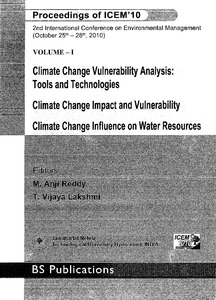Water use Efficiency Enhanced through Balanced Nutrient Management - A Case Study from Rajasthan
Abstract
Nutrient deficiencies in addition to water shortage are holding back the potential to enhance productivity o f the rain fed systems in the semi arid tropics (SAT) and is one of the main reasonsfor poor utilization o f available water and thereby low water use efficiency. The vulnerability of tanners to anticipated changes in patterns of supplies of natural resources particularly water shortage due to climate change requires optimum utiiization of water resources. In soil sample analysis from farmers fields in the semi arid regions of Rajasthan, available sulphur, boron and zinc varied across farmers fields from 1.9 to 274, 0.08 to 2.46 and 0.06 to 28,6 mg kg-1. The findings surprised with widespread deficiencies of sulphur, boron and zinc in addition to nitrogen and phosphorus. Farmer participatory experiments were conducted in the semi arid regions of Rajasthan on inclusion o f deficient secondary and micronutrients in the fertilizer recommendations for crop production along with improved cultivars. The integrated approach of soil and crop management recorded best yields by Way of improved water use efficiency in maize (2.42 times), pearl millet (2.51 times), and soybean (1,83 times)

